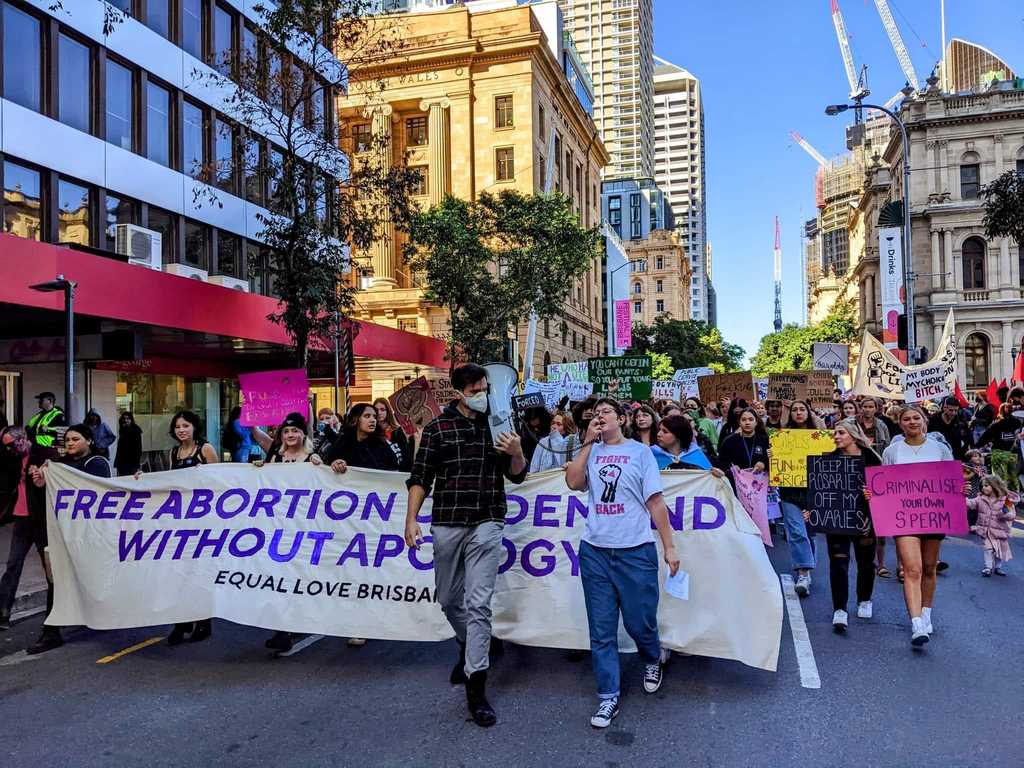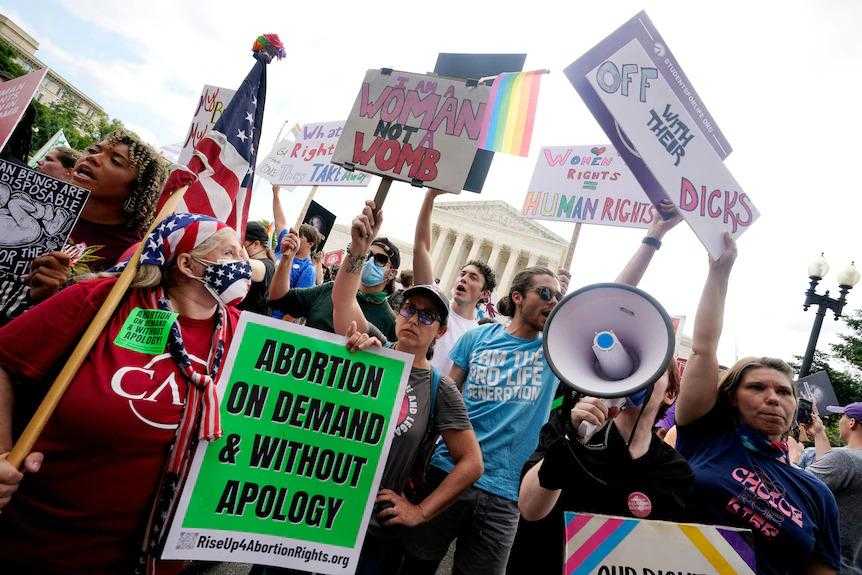Not long after documents were leaked documenting the US Supreme Court's plans to overturn Roe v Wade a month ago, this landmark 1973 case guaranteeing the constitutional right to abortion was officially overturned on June 24. Subsequently, protests have occurred not just across the US but around the world. It is essential to understand the consequences of this decision, the reason it is important for the world and not just the USA and why this was done in the first place.
This decision will mean that the right to an abortion will be dependent on state laws, and will severely restrict the ability to have an abortion across huge stretches of the US, potentially leading to criminal prosecutions of either those who have abortions or doctors who perform abortions, depending on the local laws in place. This decision is one that will lead to severe long term consequences, especially for working class women living in conservative states, and will lead to deaths due to back alley abortions and increases in fatal domestic violence, as seen in the US prior to Roe v Wade.
This will also lead to doctors being overly cautious to obey the law and may involve the prevention of medically necessary care after miscarriage, as happened in Poland after their restrictive abortion ban. The ruling will also extend beyond the immediate consequences of abortion, as restrictive abortion laws can and will also lead to those who have natural miscarriages being blamed and looked on with suspicion, despite a quarter of all pregnancies ending in miscarriage without outside intervention. There are also increasing fears that the use of period tracking apps, commonly used throughout the US to track reproductive health, may have their data used to predict and discover potential pregnancies and abortions.
It is also important to consider that as disgusting and regressive as the consequences of overturning Roe vs Wade are, this may set a precedent in the Supreme Court for overruling other landmark rulings regarding human rights. Judge Clarence Thomas, who was in favour of overturning Roe vs Wade, has also expressed a desire to reconsider other previous decisions of the court including Griswold (which protects the right of married couples to buy contraception), Lawrence (which ended the Texas sodomy laws) and Obergefell (which gave same-sex couples the right to marry). These rulings would devastate the lives of a huge number of Americans, and considering the range of different types of rulings, may not stop, putting the lives of LGBT people and women in increasing levels of danger.
It may seem strange for people here in Australia to protest a court ruling from the US, but while this doesn't affect us directly, there will be indirect effects felt worldwide. Firstly, it is essential to remember this decision was a long-time goal of the Christian far-right, and we have politicians, such as Queensland LNP senator Matt Canavan, and lobbyists here in Australia who completely agree with them on this issue and are pushing for similar outcomes. Secondly, this and other recent Supreme Court decisions (such as the rolling back of environmental protections) are indicative of the growing power of the far right in the US, and as the US has so much power over the rest of the world, will ultimately affect everyone.

Thirdly, it is important to show solidarity with people experiencing injustice around the entire world. We are internationalists because we understand that Australia doesn't exist in a vacuum. Capitalism is a global system and the ramifications of a decision in one nation, particularly with as much global reach as the US has impacts across the globe. Finally, abortions are still not totally accessible in Australia, they can cost a substantial amount of money which creates huge barriers for the working class, and may be totally inaccessible for those living in rural areas who would have to drive hours to a major city which might not be affordable for them. Abortion also remains on the penal code in Western Australia, and was only legalised in South Australia in June of this year.
But why was this done in the first place? Often, the response is religion, but the answer goes far deeper than the evangelical Christianity of the far right in the US, as ignoring the alternatives to religious reasons tends to lead to more questions than answers (eg why did conservative politicians, who were just as religious, have the exact opposite view on abortion in the 1970's?). Instead, I think it is more accurate to view the conservative opposition to abortion through the lens of capitalist exploitation of the working class and the need for ever-increasing profits.
The population of the working class of the US (as well as around the world) is continuing to fall below replacement levels, and the capitalist class is running out of both people to exploit and people to consume their products. Capitalism relies on endlessly increasing profits, and a shrinking population makes this impossible. We have in the past supplemented this loss through immigration, but it seems the capitalist class is growing less and less accepting of this idea. Whether this change is because of deep seated racism, the need to keep the Global South full of easily exploited workers, the birth rate declining globally or other reasons is unclear.
What is clear is the need to boost the local working class population to maintain their record profits, and abortion is one way that may do that, as it has been found that a complete recriminalisation of abortion across the US could result in an extra 440,000 births, as suggested by a 1999 study. An increasing population will ensure both more workers for profit to be extracted from, and increased profit due to an increase in people who can consume the products made by capitalists, at least for a while. This would all occur while the standard of living for the working class drops ever lower with decreases in the legal and medical safety of women, a lack of bodily autonomy, an increasing cost of living, and frozen wages.
It is essential to remember that history is not a steady march to progress, and that things can easily get worse. The way society progresses is with sustained action from a mass movement of the working class fighting for it, and as soon as that ends, it will lead to changes such as the Roe v Wade ruling, regressing decades of progress overnight.
So, what can be done? One example of a recent history of struggle against draconian abortion laws is Poland, whose already strict abortion laws became even more so only last year, leading to an ongoing effort throughout the country to overturn them. Concrete ways those in Poland are resisting the laws there include travel to other countries in the EU with far more lenient laws, protests and the use of abortion pills through underground networks. These lessons could be used in the US, utilising mutual aid and direct action from states without restrictive laws to those with them, which both ensures a continuation of the ability to access abortion when needed and demonstrates the power of the working class acting outside of the State apparatus to help each other.
Protesters at a June 1 solidarity rally in Brisbane said it best when they chanted, "from Brisbane to the USA, fight the bigots all the way".
